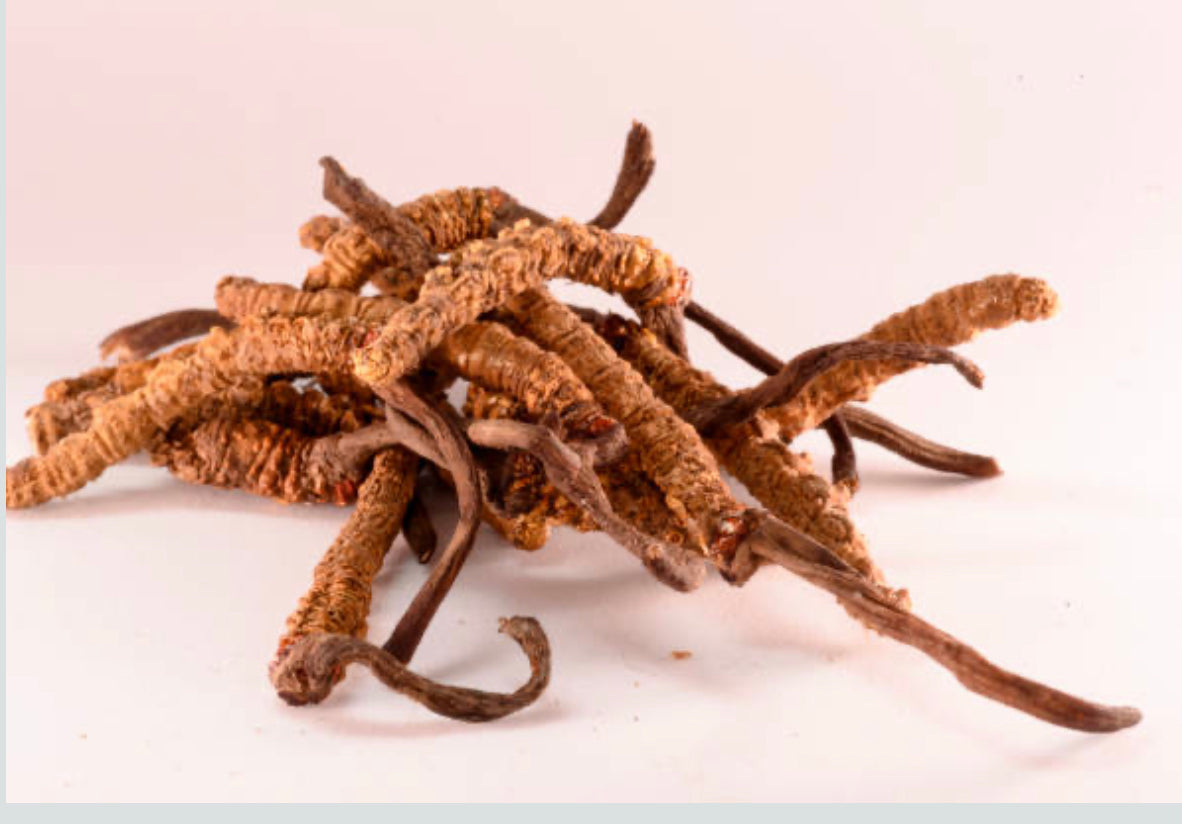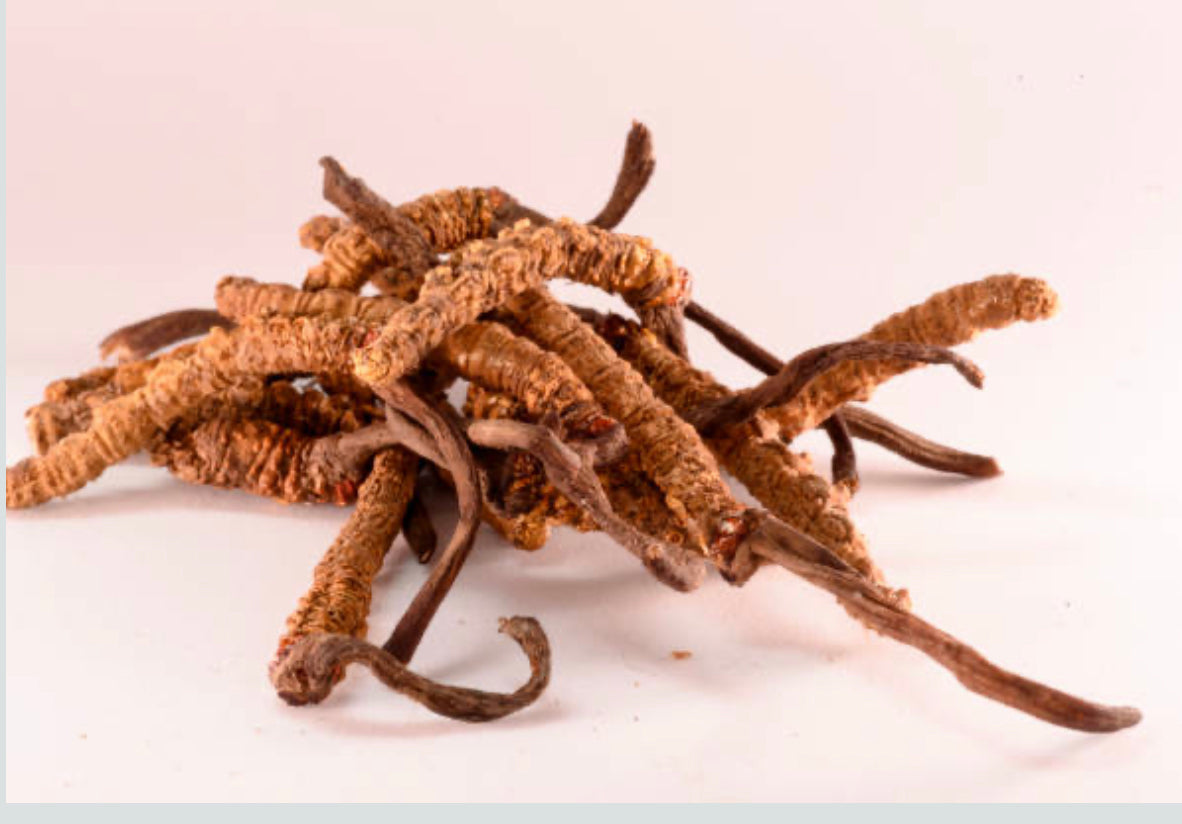HERB HEADS & Co.©️Apothecary & Makery
Cordyceps (Cordyceps sinensis) •Mushroom
Cordyceps (Cordyceps sinensis) •Mushroom
Couldn't load pickup availability
Cordyceps ( Cordyceps sinensis) is a kind of fungi found all over the world. Some of the rarest kinds are at higher altitudes in the Himalayan regions of China, Nepal, Tibet and India. Cordyceps are thought to increase the body’s production of the molecule adenosine triphosphate, which is essential for delivering energy to the muscles.
It helps aid with the improvement of the way your body uses oxygen, especially during exercise. The elderly have traditionally used Cordyceps to reduce fatigue and boost strength and sex drive.
It’s Antioxidants are molecules that fight cell damage by neutralizing free radicals, which can otherwise contribute to disease and aging. Cordyceps potentially slow the growth of tumors has generated significant interest in recent years.
Researchers believe the fungi may exert anti-tumor effects in several ways.
Cordyceps may also reverse the side effects associated with many forms of cancer therapy. One of these side effects is leukopenia. Not to be confused with the cancer leukemia, leukopenia is a condition in which the number of white blood cells (leukocytes) decreases, lowering the body’s defenses and increasing the risk of infection.
Cordyceps contain a special type of sugar that may help treat diabetes. Which, is a disease in which the body either does not produce or respond to the hormone insulin, which normally transports the sugar glucose into your cells for energy. Cordyceps may keep blood sugar levels within a healthy range by mimicking the action of insulin.
Cordyceps may also have a beneficial effect on cholesterol levels, help fight inflammation in the body as well. It’s potential inflammation-fighting properties of Cordyceps have yet to be observed in humans.
Materials
Materials
Shipping
Shipping
Care Instructions
Care Instructions



